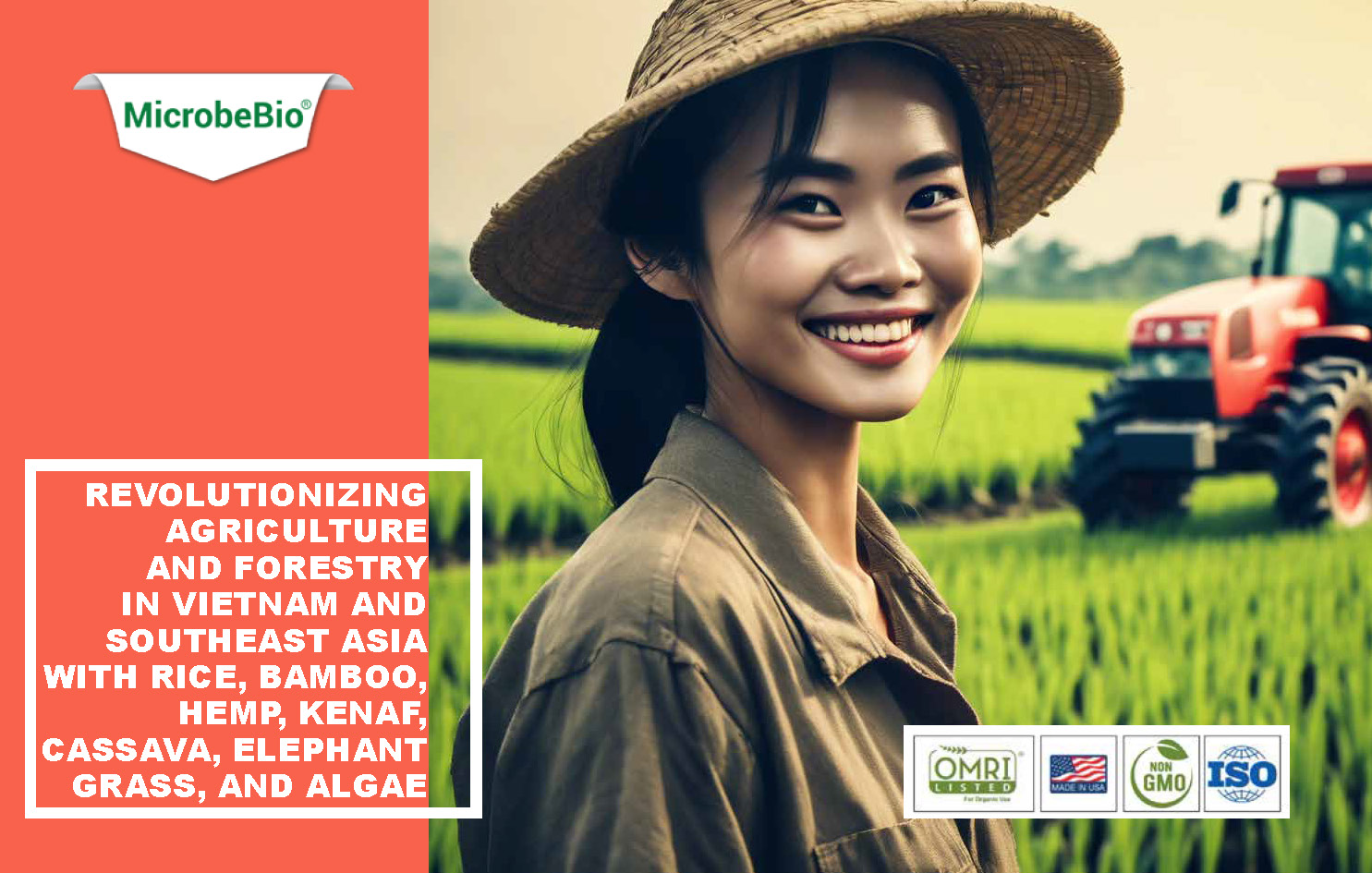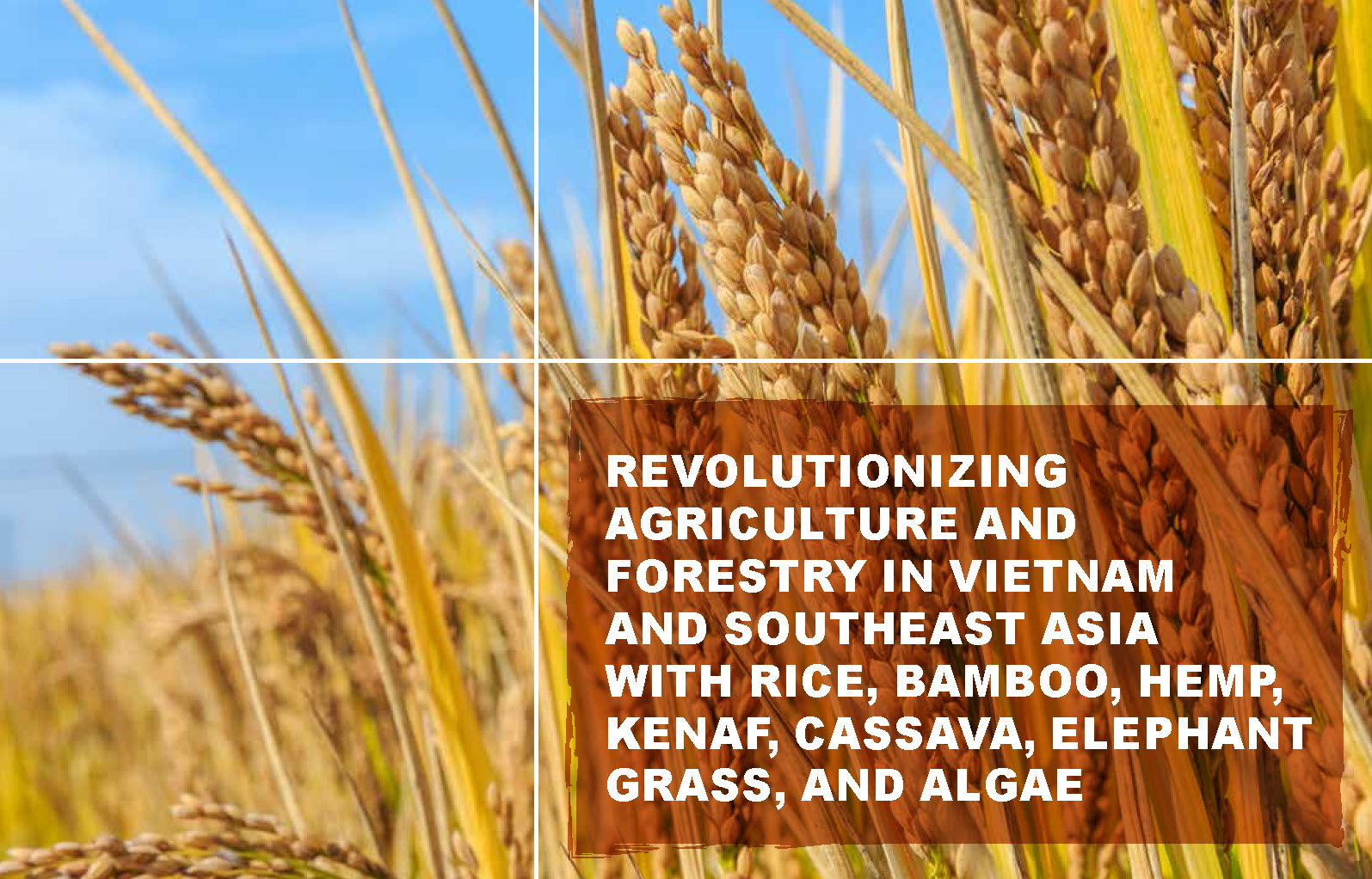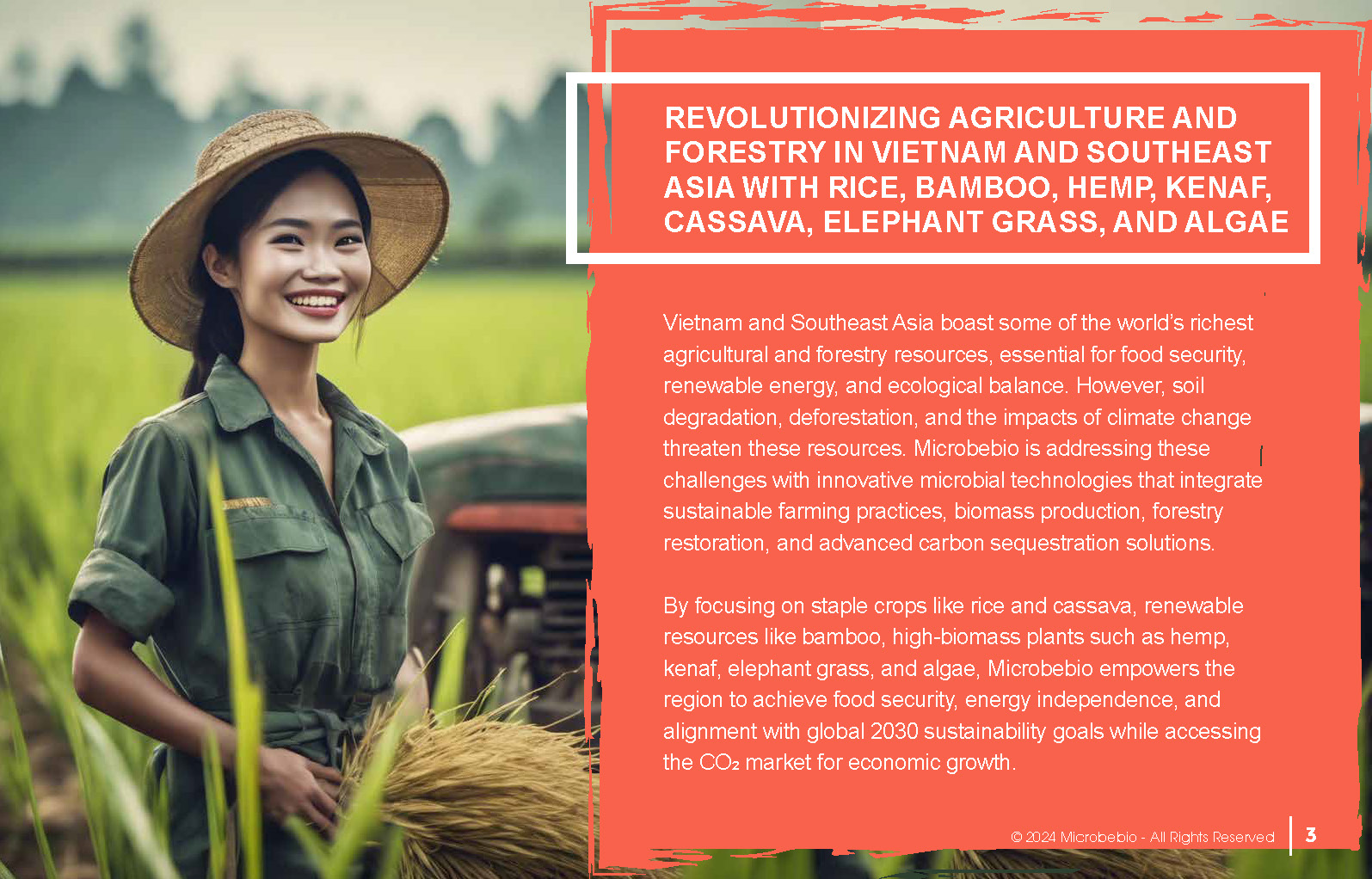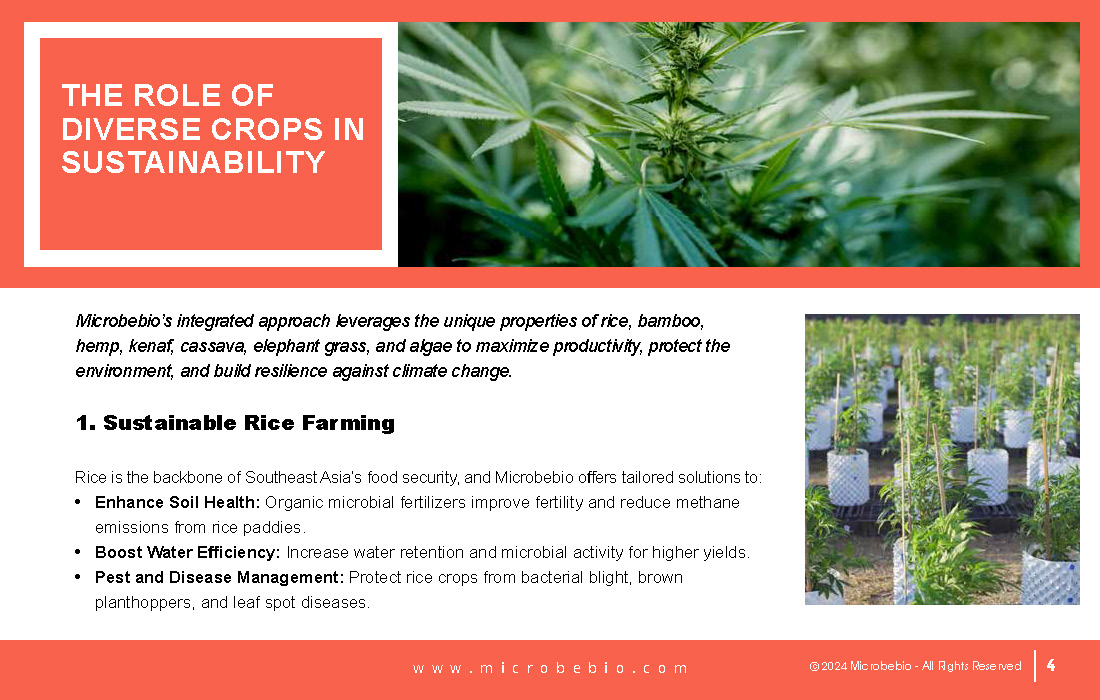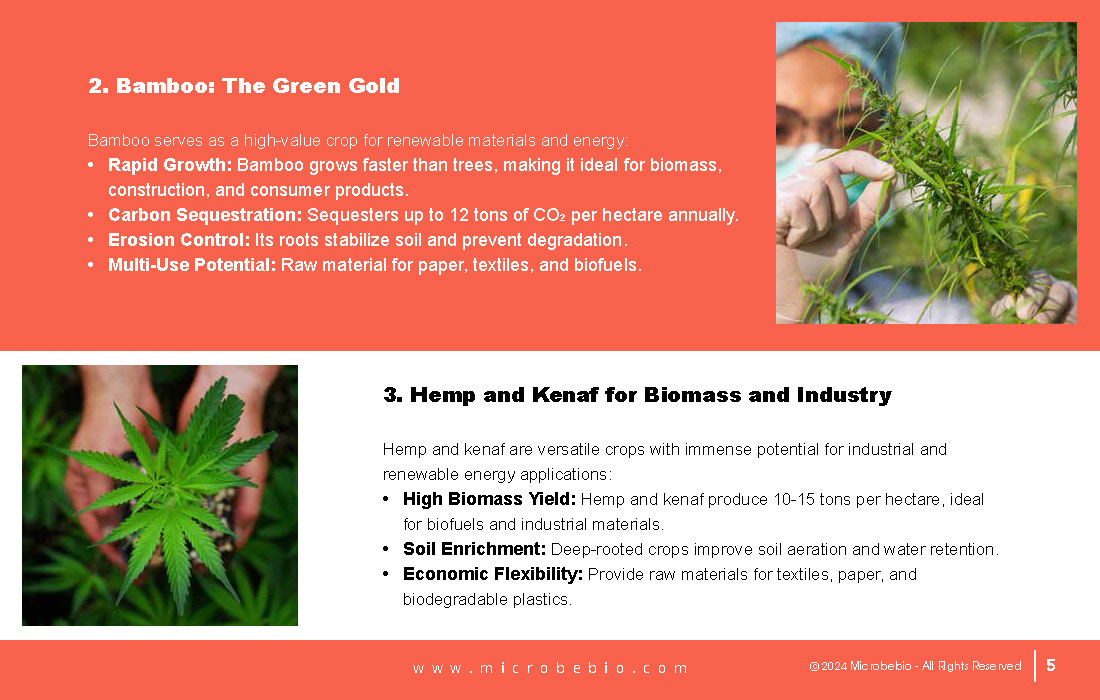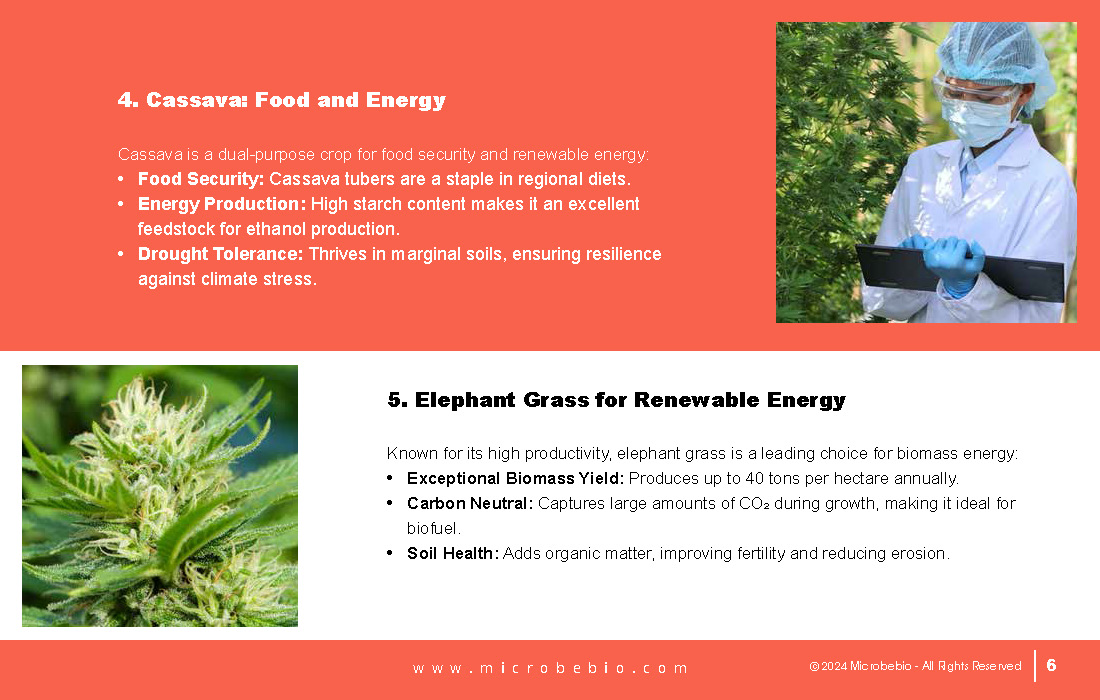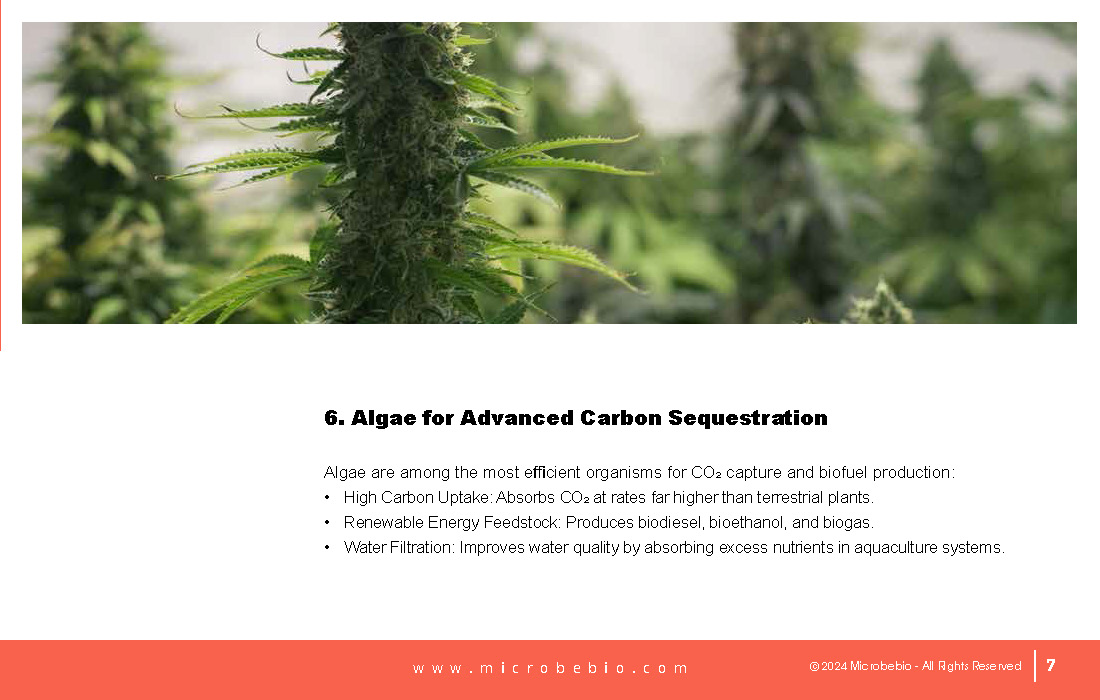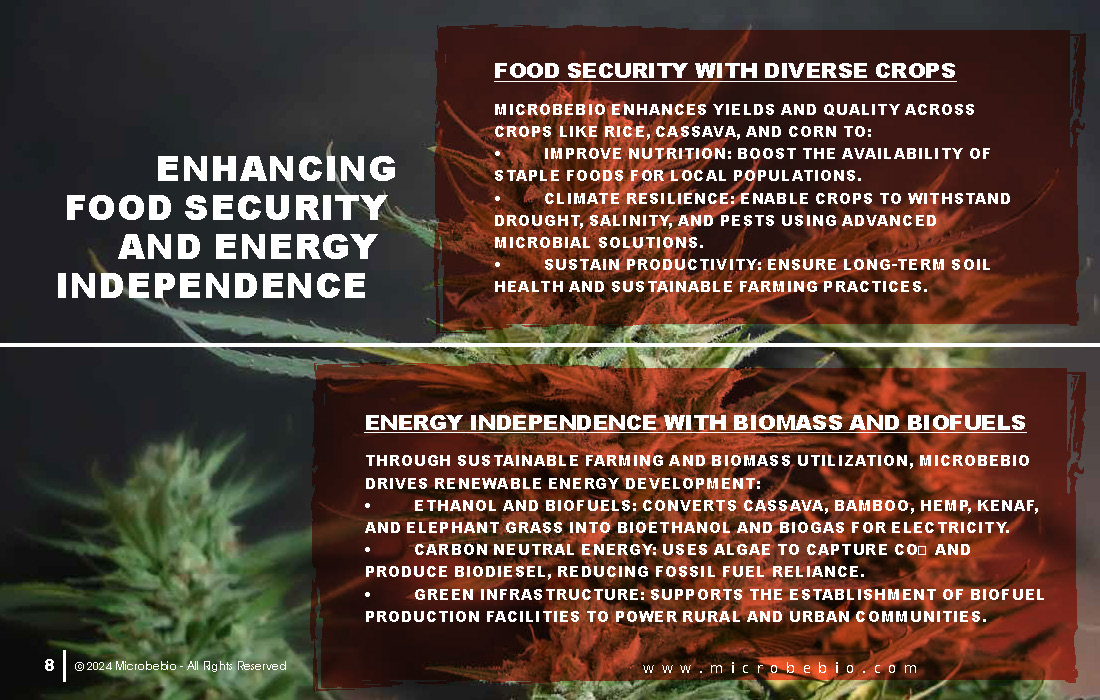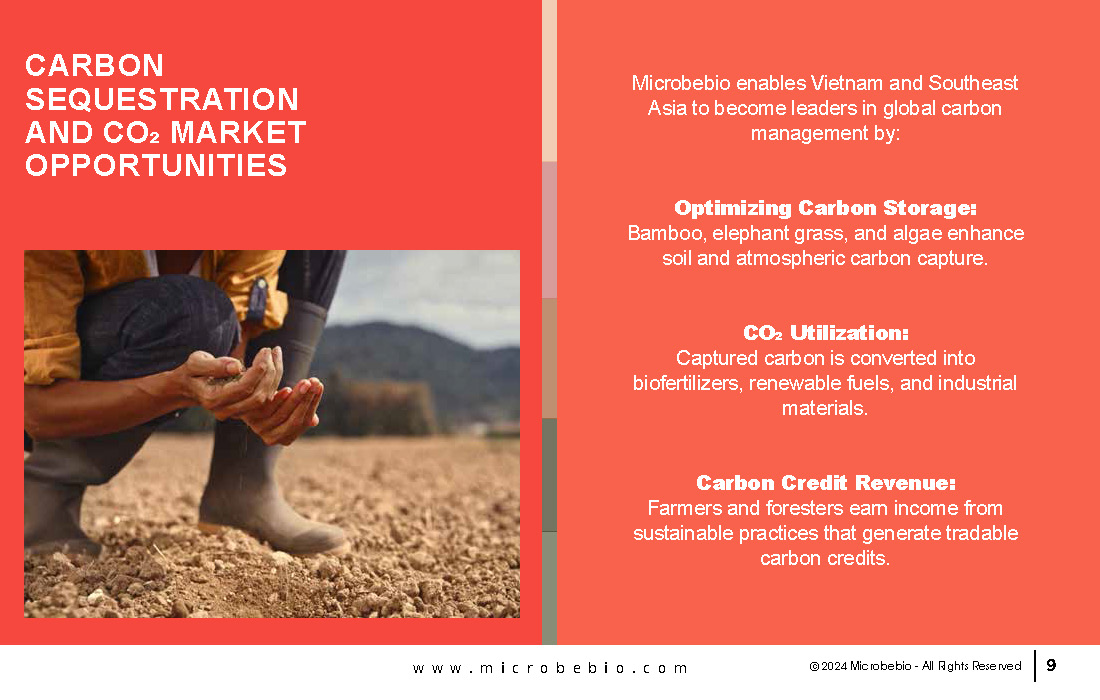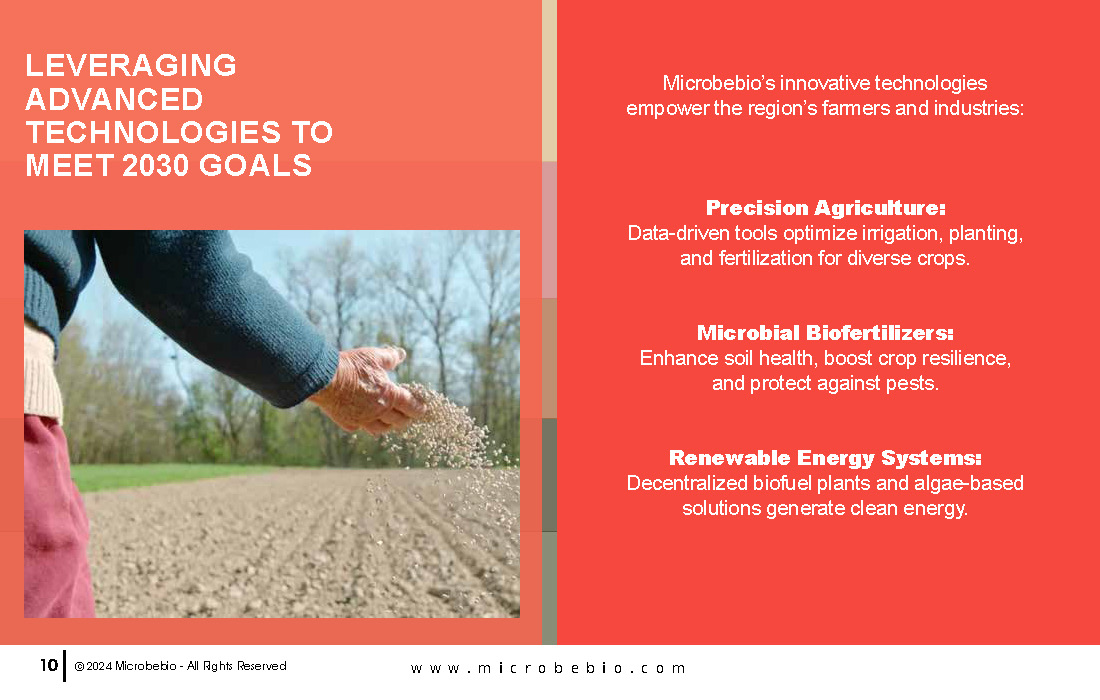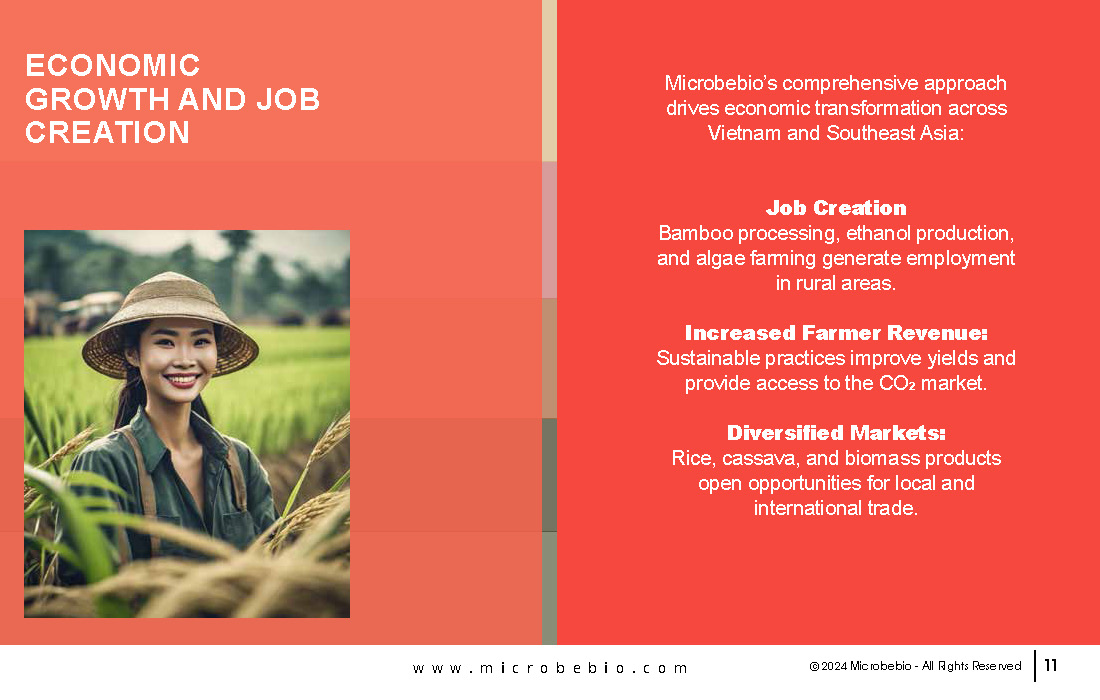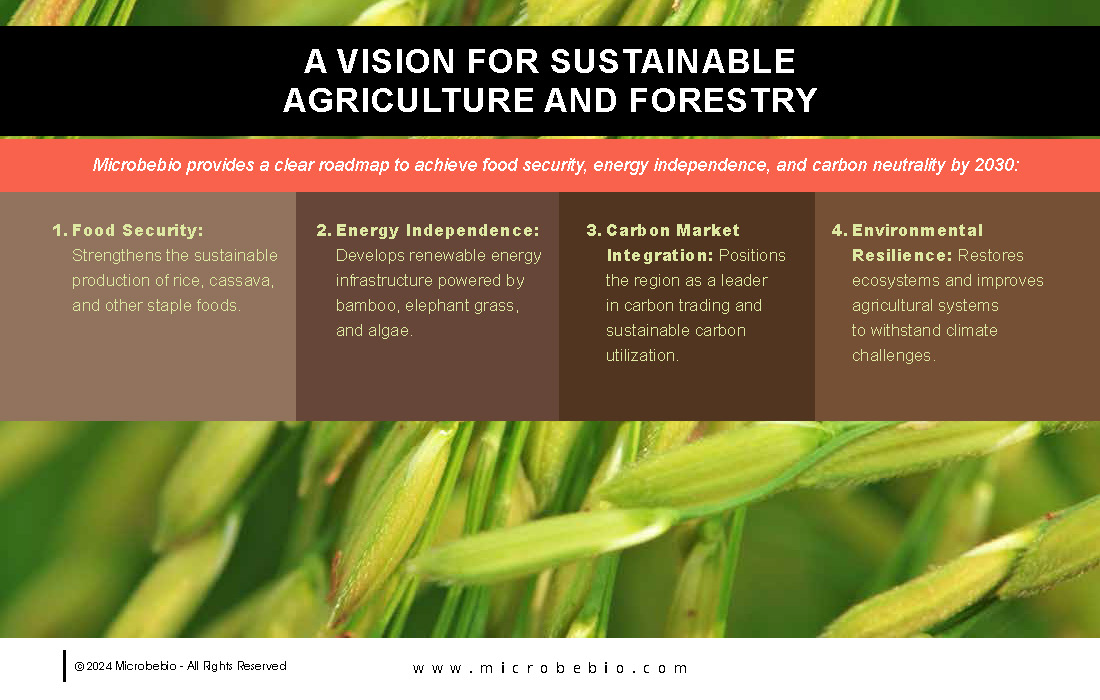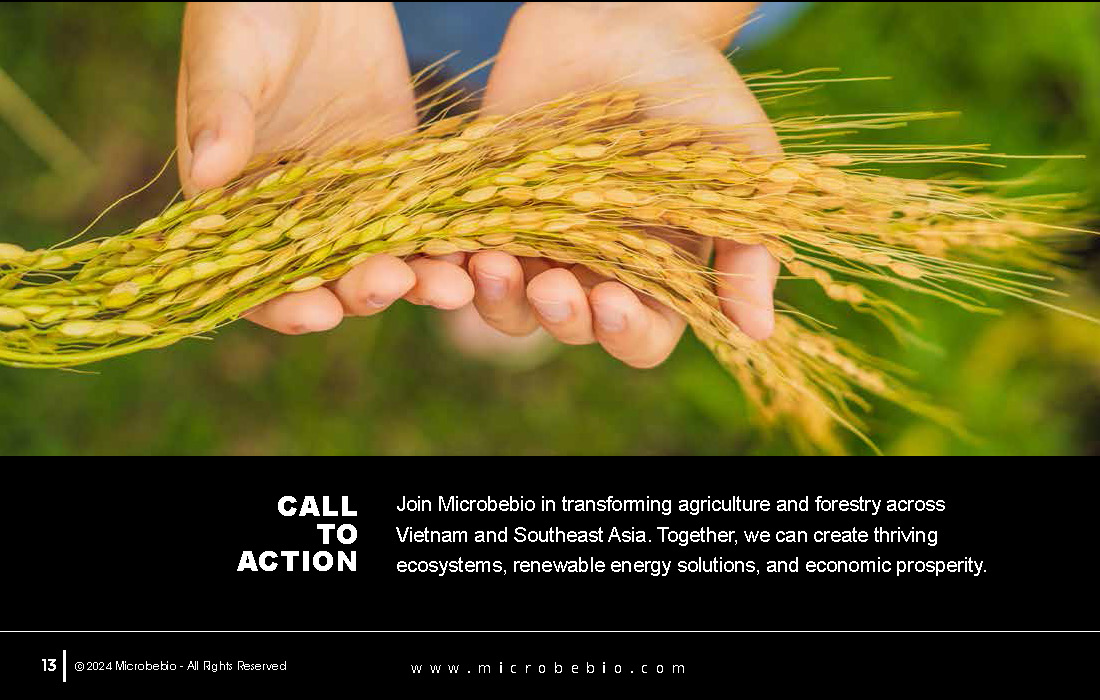Microbebio: Revolutionizing Agriculture and Forestry in Vietnam and Southeast Asia with Rice, Bamboo, Hemp, Kenaf, Cassava, Elephant Grass, and Algae
Vietnam and Southeast Asia boast some of the world’s richest agricultural and forestry resources, essential for food security, renewable energy, and ecological balance. However, soil degradation, deforestation, and the impacts of climate change threaten these resources. Microbebio is addressing these challenges with innovative microbial technologies that integrate sustainable farming practices, biomass production, forestry restoration, and advanced carbon sequestration solutions.
By focusing on staple crops like rice and cassava, renewable resources like bamboo, high-biomass plants such as hemp, kenaf, elephant grass, and algae, Microbebio empowers the region to achieve food security, energy independence, and alignment with global 2030 sustainability goals while accessing the CO₂ market for economic growth.
The Role of Diverse Crops in Sustainability
Microbebio’s integrated approach leverages the unique properties of rice, bamboo, hemp, kenaf, cassava, elephant grass, and algae to maximize productivity, protect the environment, and build resilience against climate change.
- Sustainable Rice Farming
Rice is the backbone of Southeast Asia’s food security, and Microbebio offers tailored solutions to:
- Enhance Soil Health:Organic microbial fertilizers improve fertility and reduce methane emissions from rice paddies.
- Boost Water Efficiency:Increase water retention and microbial activity for higher yields.
- Pest and Disease Management:Protect rice crops from bacterial blight, brown planthoppers, and leaf spot diseases.
- Bamboo: The Green Gold
Bamboo serves as a high-value crop for renewable materials and energy:
- Rapid Growth:Bamboo grows faster than trees, making it ideal for biomass, construction, and consumer products.
- Carbon Sequestration:Sequesters up to 12 tons of CO₂ per hectare annually.
- Erosion Control:Its roots stabilize soil and prevent degradation.
- Multi-Use Potential:Raw material for paper, textiles, and biofuels.
- Hemp and Kenaf for Biomass and Industry
Hemp and kenaf are versatile crops with immense potential for industrial and renewable energy applications:
- High Biomass Yield:Hemp and kenaf produce 10-15 tons per hectare, ideal for biofuels and industrial materials.
- Soil Enrichment:Deep-rooted crops improve soil aeration and water retention.
- Economic Flexibility:Provide raw materials for textiles, paper, and biodegradable plastics.
- Cassava: Food and Energy
Cassava is a dual-purpose crop for food security and renewable energy:
- Food Security:Cassava tubers are a staple in regional diets.
- Energy Production:High starch content makes it an excellent feedstock for ethanol production.
- Drought Tolerance:Thrives in marginal soils, ensuring resilience against climate stress.
- Elephant Grass for Renewable Energy
Known for its high productivity, elephant grass is a leading choice for biomass energy:
- Exceptional Biomass Yield:Produces up to 40 tons per hectare annually.
- Carbon Neutral:Captures large amounts of CO₂ during growth, making it ideal for biofuel.
- Soil Health:Adds organic matter, improving fertility and reducing erosion.
- Algae for Advanced Carbon Sequestration
Algae are among the most efficient organisms for CO₂ capture and biofuel production:
- High Carbon Uptake:Absorbs CO₂ at rates far higher than terrestrial plants.
- Renewable Energy Feedstock:Produces biodiesel, bioethanol, and biogas.
- Water Filtration:Improves water quality by absorbing excess nutrients in aquaculture systems.
Enhancing Food Security and Energy Independence
Food Security with Diverse Crops
Microbebio enhances yields and quality across crops like rice, cassava, and corn to:
- Improve Nutrition:Boost the availability of staple foods for local populations.
- Climate Resilience:Enable crops to withstand drought, salinity, and pests using advanced microbial solutions.
- Sustain Productivity:Ensure long-term soil health and sustainable farming practices.
Energy Independence with Biomass and Biofuels
Through sustainable farming and biomass utilization, Microbebio drives renewable energy development:
- Ethanol and Biofuels:Converts cassava, bamboo, hemp, kenaf, and elephant grass into bioethanol and biogas for electricity.
- Carbon Neutral Energy:Uses algae to capture CO₂ and produce biodiesel, reducing fossil fuel reliance.
- Green Infrastructure:Supports the establishment of biofuel production facilities to power rural and urban communities.
Carbon Sequestration and CO₂ Market Opportunities
Microbebio enables Vietnam and Southeast Asia to become leaders in global carbon management by:
- Optimizing Carbon Storage:Bamboo, elephant grass, and algae enhance soil and atmospheric carbon capture.
- CO₂ Utilization:Captured carbon is converted into biofertilizers, renewable fuels, and industrial materials.
- Carbon Credit Revenue:Farmers and foresters earn income from sustainable practices that generate tradable carbon credits.
Leveraging Advanced Technologies to Meet 2030 Goals
Microbebio’s innovative technologies empower the region’s farmers and industries:
- Precision Agriculture:Data-driven tools optimize irrigation, planting, and fertilization for diverse crops.
- Microbial Biofertilizers:Enhance soil health, boost crop resilience, and protect against pests.
- Renewable Energy Systems:Decentralized biofuel plants and algae-based solutions generate clean energy.
Economic Growth and Job Creation
Microbebio’s comprehensive approach drives economic transformation across Vietnam and Southeast Asia:
- Job Creation:Bamboo processing, ethanol production, and algae farming generate employment in rural areas.
- Increased Farmer Revenue:Sustainable practices improve yields and provide access to the CO₂ market.
- Diversified Markets:Rice, cassava, and biomass products open opportunities for local and international trade.
A Vision for Sustainable Agriculture and Forestry
Microbebio provides a clear roadmap to achieve food security, energy independence, and carbon neutrality by 2030:
- Food Security:Strengthens the sustainable production of rice, cassava, and other staple foods.
- Energy Independence:Develops renewable energy infrastructure powered by bamboo, elephant grass, and algae.
- Carbon Market Integration:Positions the region as a leader in carbon trading and sustainable carbon utilization.
- Environmental Resilience:Restores ecosystems and improves agricultural systems to withstand climate challenges.
Call to Action
Join Microbebio in transforming agriculture and forestry across Vietnam and Southeast Asia. Together, we can create thriving ecosystems, renewable energy solutions, and economic prosperity.
Trending Hashtags
#Microbebio #SustainableAgriculture #RiceFarming #BambooInnovation #HempBiomass #KenafEnergy #CassavaProduction #ElephantGrass #AlgaeTechnology #FoodSecurity #EnergyIndependence #CarbonSequestration #2030Goals
Empower Vietnam and Southeast Asia with Microbebio—innovative solutions for sustainable agriculture, forestry, and renewable energy.
